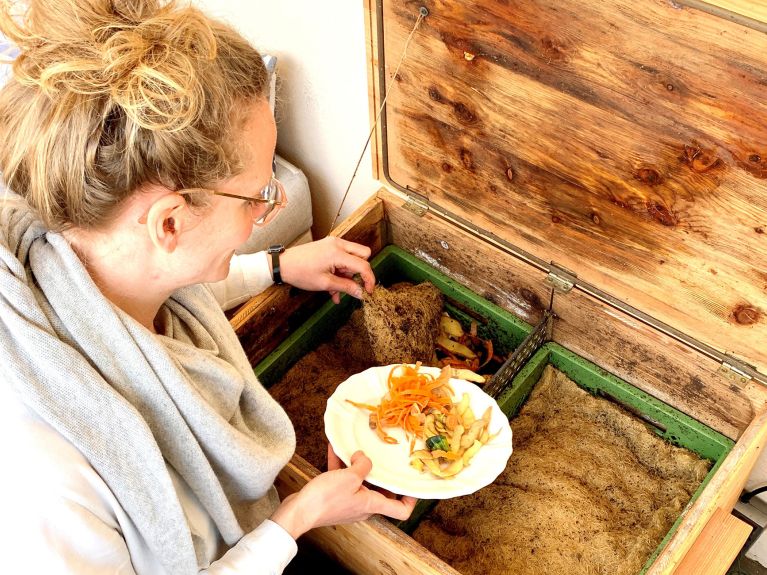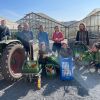Worm box and sustainable bank account
Meals, clothing, travel: Ankathrin Förster and her family live sustainably wherever possible.

“Even my mother lived sustainably. She always for instance took along a Tupperware container to save packaging when she went to the cheese shop. As a child, I found that totally embarrassing. I lived life to the fullest in my youth, flew a lot and shopped a lot. Yet when I became a mother myself, I started to think differently about what our actions mean for the future. Then I stumbled across a book about plastic and became aware of the far-reaching impacts of pollutants and microplastics on our health and environment.
Appreciating food means a lot to me.
That’s how I started to make our life plastic-free. More and more has been added over the years: We shop waste-free as far as possible. We seldom eat meat or other animal products. Appreciating food also means a lot to me. We try to use everything up or make leftovers into another meal. Organic waste goes into our ‘worm box’, a type of compost bin.
Great-grandmother’s mop bucket
We do certainly have an electric car, but seldom use it. I do a lot with my bike and trailer. My children are eight and nine years old and can now also ride longer distances on their own. We avoid flying as much as possible and travel by train or electric car, either to other European countries or when holidaying within Germany.

We rely on pre-owned when it comes to clothing and other consumer goods: We go to flea markets and buy from second-hand shops or corresponding online portals. I’ve also inherited a lot of items, which I look after well – for example an enamel mop bucket that my great-grandmother used and is bound to be 100 years old.
The next objective: a sustainable mobile phone contract
I also feel it’s really important for me to have my account with a sustainable bank. What I’m still missing, though, is a sustainable mobile phone contract.
My tip for people who’d like to make their life more sustainable: The greatest impact comes from changes in the ‘4 factors’ identified by sustainability researcher Maja Göpel: Flying, meat, clothing, finances, in other words fly less, eat less meat, buy fewer or sustainable clothes and invest your money sustainably. Even if you only manage one of these, you’ve already achieved a lot.”


